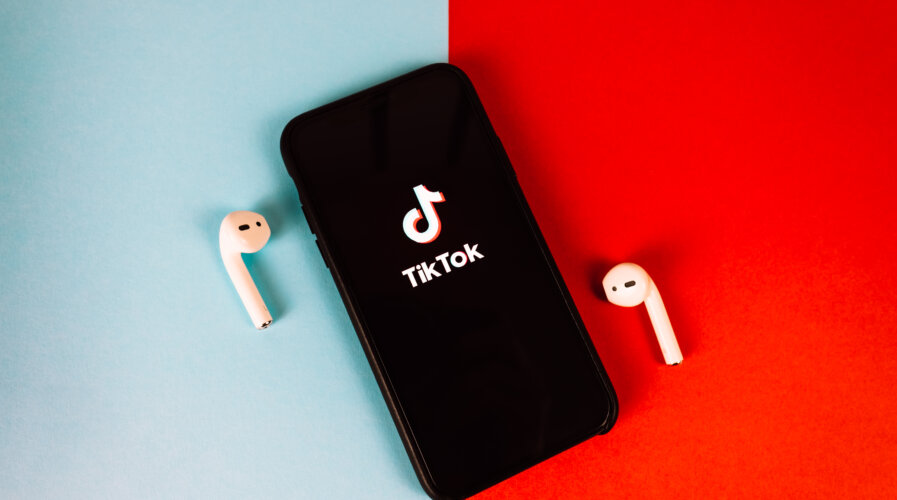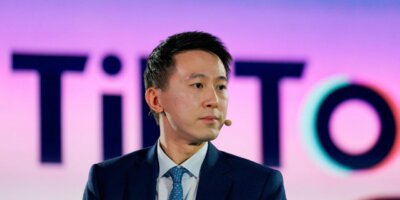
(Source – Shutterstock)
As the US grills TikTok CEO, China welcomes Apple CEO
The last few weeks have been rather interesting in the tech world. While Microsoft and Google continue to challenge each other on providing customers with the ultimate AI tool, China has been watching the tech development and actively working on its own generative AI solutions.
As Baidu unveiled its ERNIE Bot, which many believe is currently China’s best option to compete with Google and Microsoft, there were mixed reactions in the industry. While Baidu themselves have admitted that the product is still in the process of being perfected for usage, the general feeling is that Microsoft and Google seem to be leading the race currently.
What’s more interesting is that Huawei, another huge Chinese tech company, has said that it will not be looking into the ChatGPT race for the time being. Instead, the tech giant feels that it has more important areas to focus on and improve, a decision that makes sense but could come back to haunt them in the future.
But generative AI is just one small problem between the US and China. The bigger concern right now is TikTok. As one of the world’s biggest social media platforms with over a billion users, TikTok has been the subject of a potential complete ban in the United States since President Trump was in office.
Now it seems more than likely to happen. Already banned from use on government devices in the country, the US Congress had a five-hour grilling session with TikTok CEO Chew Shou Zi last week. The concerns that TikTok’s parent company, China’s ByteDance, is collecting data on its users and spying on them have been ongoing for some time.
This is not the first piece of Chinese technology that is banned in the US, and it will most likely not be the last as well. Several other countries have also joined the US in banning TikTok from government devices. It is also important to note that as the US started imposing sanctions and a ban on Chinese technology, China also banned US technology in its country. Google, Facebook, and several other US apps and websites have been banned or removed their services from the country for more than a decade.
Interestingly, while the clock seems to be ticking for TikTok in the US, it’s a totally different scenario for Apple in China. Unlike TikTok, Apple is already looking to move production out of China, with Vietnam and India seen as alternatives.
However, when CEO Tim Cook was in China over the weekend for the China Development Forum, the reception was totally different. Cook commented that Apple enjoys a “symbiotic” relationship with China and also stated that “Apple and China grew together” during an interview on the role of technology in education.
“This has been a symbiotic kind of relationship that I think we both enjoyed,” he said at the state-run event attended by top government officials and corporate leaders. Cook’s visit comes as Apple, the world’s biggest company by market value, saw its sales hit by curtailed production at factories as a result of China’s zero-Covid policy.
US export controls on high-tech components are also threatening the company’s supply chain. Cook did not address supply chain issues during his discussion. Instead, he focused on the need to bridge the education gap between urban and rural schools and encouraged young people to learn programming and critical thinking skills.
He also pledged to increase Apple’s spending on its rural education program in China to 100 million yuan (US$15 million). Cook visited an Apple Store in downtown Beijing on Friday, and a photo of him posing for a selfie with singer Huang Ling has gone viral on Chinese social media.
Bloomberg reported that Cook also met with Chinese government officials during his trip as he looks to maintain a mutually beneficial relationship with them.
Meanwhile, back in the US, there is a growing demand for ByteDance to sell the social media company, or risk facing a ban. However, a ban in the US could have a huge impact, as most of TikTok’s quarter-million users have American firms providing services associated with the app as well.
Whatever happens, both Apple and TikTok are now just carrying on business as usual as both the US and China continue to figure out how to solve the issue.
prw/mca
With additional reporting from Agence France-Presse
READ MORE
- Data Strategies That Dictate Legacy Overhaul Methods for Established Banks
- Securing Data: A Guide to Navigating Australian Privacy Regulations
- Ethical Threads: Transforming Fashion with Trust and Transparency
- Top 5 Drivers Shaping IT Budgets This Financial Year
- Beyond Connectivity: How Wireless Site Surveys Enhance Tomorrow’s Business Network


